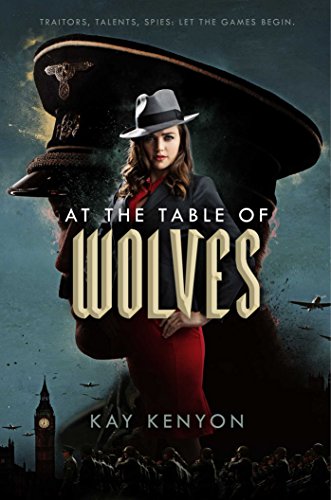Interview: Author David Mack

Today on Skiffy and Fanty, I interview the author of Midnight Front and The Iron Codex (among very many other things), David Mack. PW: You’ve penned sequels and follow-on novels in the various fictional universes you’ve written in before. What was different about your process in tackling The Iron Codex? DM: Adding stories to the ongoing literary continuity of Star Trek, as I’ve been doing since 2001, is very different from writing a sequel to my own original novel. When I write a Star Trek novel, I’m able to take advantage of the fact that many ideas and concepts don’t need to be explained in great detail, because readers of Star Trek novels are already familiar with the series’ setting and characters.
Book Review: At the Table of Wolves by Kay Kenyon

Spies and Espionage are a genre of novels that is irresistible to science fiction and fantasy writers who want to mix some peanut butter in their chocolate. Cloak and Dagger, hidden agendas, betrayals, allegiances, loyalty and the glamour and seduction of the spy’s life. James Bond and his competitors, clones and remakes are just a fraction of what can be tapped, especially once someone adds science fiction and fantasy to the mix. At the Table of Wolves by Kay Kenyon is the newest in that tradition, combining 1930s British espionage with superpowers. In the world of Kenyon’s novel, superpowers, here called Talents, started appearing after the devastation of World War I. How and why precisely this Bloom occurred is not explained in detail. It’s taken as a fact, and the repercussions of that event are playing out, more than a decade later. Intelligence agencies, governments, and just plain ordinary people are dealing with the fact that some people can now show feats of precognition, or reading objects, or seeing crimes, or, perhaps, having the preternatural ability to get people, without their volition, to spill things they would never dreaming of confessing. And it is that last talent that brings us to the heroine of the novel.

